The Sun Legend of the End of the Tokugawa Era review
 Posted : 10 years, 10 months ago on 20 August 2014 04:31
(A review of The Sun Legend of the End of the Tokugawa Era)
Posted : 10 years, 10 months ago on 20 August 2014 04:31
(A review of The Sun Legend of the End of the Tokugawa Era)Maestro magician, prestidigitator of panache, Kawashima conjures a freewheeling farce of felicitous finesse in a bawdy bordello. Wiith lustrous lighting, consummate choreography and composition, 'tis a coruscating concoction of concuspicent cavortings, pissing and politicking in turbulent times- and for our company a cast of cute combative courtesans, seditious scheming samurai and a jovial japing drifter-grifter.
 0 comments, Reply to this entry
0 comments, Reply to this entry
Lucky Star review
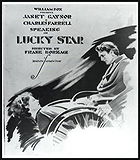 Posted : 10 years, 10 months ago on 20 August 2014 04:30
(A review of Lucky Star)
Posted : 10 years, 10 months ago on 20 August 2014 04:30
(A review of Lucky Star)This silent melodrama, about a wheelchair-bound war vet who falls for a poor country lass but has to contend with an interloping scoundrel, may seem old fashioned corn to some. But i love it. Farrell and Gaynor make a grand couple and once again, she melts my heart.
 0 comments, Reply to this entry
0 comments, Reply to this entry
L'ordre review
 Posted : 10 years, 10 months ago on 20 August 2014 04:29
(A review of L'ordre)
Posted : 10 years, 10 months ago on 20 August 2014 04:29
(A review of L'ordre)An important, troubling film about the former leper colony on the Greek island of Spinalonga, which shows due empathy towards people who have been shamefully mistreated and cast aside- including one man who speaks to camera of his experiences. Here director Pollet's repetitions add to the sense of a bleak burden imposed by society. Though the colony has gone the film is still very relevant in today's callous world.
 0 comments, Reply to this entry
0 comments, Reply to this entry
Richard III review
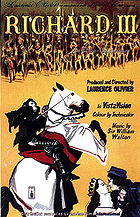 Posted : 10 years, 10 months ago on 20 August 2014 04:28
(A review of Richard III)
Posted : 10 years, 10 months ago on 20 August 2014 04:28
(A review of Richard III)A weaker film than Olivier's Henry V and Hamlet, but at least we have the evil Richard that the current Ricardian propagandists want made a saint. "Foul devil, for God's sake, hence, and trouble us not; For thou hast made the happy earth thy hell, Fill'd it with cursing cries and deep exclaims. .. Either heaven with lightning strike the murderer dead, Or earth, gape open wide and eat him quick."
 0 comments, Reply to this entry
0 comments, Reply to this entry
This Transient Life review
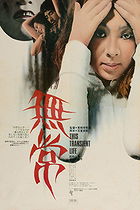 Posted : 10 years, 10 months ago on 20 August 2014 04:26
(A review of This Transient Life)
Posted : 10 years, 10 months ago on 20 August 2014 04:26
(A review of This Transient Life)A dark, rich and strange exploration of incest and sexual desire, with magnificent b+w cinematography, striking camerawork, framing and extraordinary feeling for textures, space and architecture. The social, philosophical and religious implications were interesting but the discussion of the male protagonist's self-indulgent credo detracted a bit from the intriguing sensual mystery. Still, a remarkable film.
 0 comments, Reply to this entry
0 comments, Reply to this entry
Face to Panty Ratio review
 Posted : 10 years, 10 months ago on 20 August 2014 04:23
(A review of Face to Panty Ratio)
Posted : 10 years, 10 months ago on 20 August 2014 04:23
(A review of Face to Panty Ratio)Kern gives us the lowdown on today's porn-obsessed society. Kern simultaneously interrogates the cinematic power of close-ups and variety inherent in the female underwear industry. Kern strikes a modern riff on classical civilisations' admiration of female beauty. Kern gets kinky. Kern is a dirty youtube video pervert. Kern has his cake and eats it.
 0 comments, Reply to this entry
0 comments, Reply to this entry
Tinker Tailor Soldier Spy review
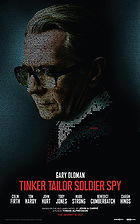 Posted : 10 years, 10 months ago on 20 August 2014 04:17
(A review of Tinker Tailor Soldier Spy)
Posted : 10 years, 10 months ago on 20 August 2014 04:17
(A review of Tinker Tailor Soldier Spy)I found it gripping, relished the slow building of paranoid, oppressive and mysterious atmosphere, and it also highlights the dark side of the British private school system, gateway to elite clubs. With such shady characters, tense rivalries and violence, neither side of the cold war comes out with credit. Oldman and the cast as a whole are excellent, the settings and sense of the time very effectively handled.
 0 comments, Reply to this entry
0 comments, Reply to this entry
Hugo review
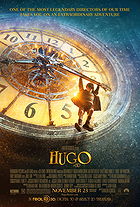 Posted : 10 years, 10 months ago on 20 August 2014 04:15
(A review of Hugo)
Posted : 10 years, 10 months ago on 20 August 2014 04:15
(A review of Hugo)Forget the naysayers wanting the Scorsese of Taxi Driver, Goodfellas and Raging Bull: Hugo is absolute delight! So rich in its settings and details, so magical in its use of 3-D technology, so loving of cinema, so noble in its soul: a film Scorsese was born to make.
 0 comments, Reply to this entry
0 comments, Reply to this entry
The Magdalene Sisters review
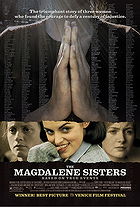 Posted : 10 years, 10 months ago on 20 August 2014 04:13
(A review of The Magdalene Sisters)
Posted : 10 years, 10 months ago on 20 August 2014 04:13
(A review of The Magdalene Sisters)The Magdalene Sisters is based on what was a reality of life (until surprisingly recently) in Ireland- many girls and young women considered promiscuous or simply flirtatious were forced to live in convents and work in their laundries. It's a powerful indictment of the Catholic church and pervasive social attitudes- the punitive "morality" and gender double standards towards sex. Of course it wasn't only an Irish problem: the idea of shame of unmarried sex and pregnancy still festers on in some quarters. A film that hardly hides its opinions, and why should it? The reality was disgusting and fills me with anger and pity.
 0 comments, Reply to this entry
0 comments, Reply to this entry
Sleep Furiously review
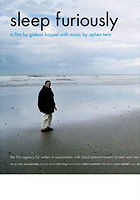 Posted : 10 years, 10 months ago on 20 August 2014 04:10
(A review of Sleep Furiously)
Posted : 10 years, 10 months ago on 20 August 2014 04:10
(A review of Sleep Furiously)Sleep Furiously is a documentary that's something of a labour of love for Welsh rural way of life in a changing world. Liverpool-born director Gideon Koppel is the son of Jewish refugees who settled in the Trefeurig community, consisting of a few villages/hamlets in West Wales, where he was brought up as a child. His father had been a well-known painter in South Wales, and his mother appears in the film.
Although not far from the main route to the sea for holidaymakers from Birmingham and the English West Midlands, Trefeurig is quite off the beaten track, in one of the least populated patches of England and Wales. This is not a film the Wales tourist board might come up with; it concentrates on the simple daily lives among the relatively austere, often bald hills, rather than more spectacular and crowd-pulling spots like the waterfalls at nearby Devil's Bridge/Pontarfynach, or the coastline. Nor do we see the abandoned nearby lead and other mineral mines. Oh, this is the area too of the great (Welsh language) medieval poet Dafydd ap Gwilym , who wrote of courtly love, animals and nature, and some more bawdy goings on, including in praise of the penis. This film has conjured up in some critics’ minds comparisons with another (lesser) poet Dylan Thomas’ Under Milk Wood, but Thomas’ view of Welsh life is more comical and satirical, set on the coast further South.
The film’s title comes from a Noam Chomsky phrase “colorless green ideas sleep furiously”- that is one of its contrasts, as is its green-ness compared with greys too. With the beautiful and artful shots, it’s more than a straightforward fly on-the-wall documentary- while unobtrusive and without voice-over, the director’s character comes through. It’s not so much a Wiseman film as a the film of a wise man, i’d say. Koppel has been employed teaching on films at Aberystwyth university, several miles from the film’s setting. I like the way the static camera allows movement onto and off screen, generally resisting temptation to follow, and so increasing the sense of off-screen space
Sleep Furiously encourages contemplation. It quietly takes its time, mixes numerous (relatively) long takes with some shorter scenes and “timelapse”, long shots with close details, mainly static camera with occasional movement, low shots e.g of hooves, with higher rural views. It could be considered a tapestry, interested in patterns, textures and effects of light, and also in the seasons and elements. The wind rustles the grass, blows clean white sheets on a line. The wind makes mischief with a new signpost, turning it in wrong directions- we may not need the accompanying ditty from a local to see how modern ways aren’t always the most practical. The camera dwells on rocks, stones, tools, the light falling on a moth’s wings, a pig’s curly tail, while the sheep make memorable patterns in a landscape that would bring a knowing smile to Kiarostami.
Considered lyrical and poetic, it’s unpretentious as the lives it portrays and the sponge cake we see being prepared. At its heart is the mobile library, a means for chat and for the outer world to penetrate the local consciousness. We see machines alongside older ways, mention of computers with sheep dog trials (well, a practice run), jams and vegetables, children dancing and making music. Although the school and future of the community may be under threat, alongside yawning, tea-making, rambling elders, we are reminded of youthful potential- fireworks a short exuberant contrast to the slowness of the pace and land.
There are pleasures to be gained from small contrasts: birth, death, vegetarian cookbook, mention of a pig’s future fate…. Seek them and ye shall find. Trefeurig is part of Welsh-speaking Wales (the strongholds of the ancient language are mainly in the West), but there are English voices too. The general impression remains one of communal harmony. Roger Ebert found the film lovely but too complacent. Its soul is good and i think he’s wrong on the second count. It was a worthy Sight & Sound film of the month.
It’s a film for animal lovers (sheep, ferret, dogs, cat, cows, fish…count them!), taxidermists, tree lovers (one fine noble tree stays in the mind) , tool-makers, agricultural students, anthropologists, cloud-watchers, tao-ist meditators, cultural historians, admirers of scenery and cinematography, as well as linguists. Approach it as you want, but watch in the right frame of mind, immersed in its gentle rhythms, and it should be very rewarding.
Although not far from the main route to the sea for holidaymakers from Birmingham and the English West Midlands, Trefeurig is quite off the beaten track, in one of the least populated patches of England and Wales. This is not a film the Wales tourist board might come up with; it concentrates on the simple daily lives among the relatively austere, often bald hills, rather than more spectacular and crowd-pulling spots like the waterfalls at nearby Devil's Bridge/Pontarfynach, or the coastline. Nor do we see the abandoned nearby lead and other mineral mines. Oh, this is the area too of the great (Welsh language) medieval poet Dafydd ap Gwilym , who wrote of courtly love, animals and nature, and some more bawdy goings on, including in praise of the penis. This film has conjured up in some critics’ minds comparisons with another (lesser) poet Dylan Thomas’ Under Milk Wood, but Thomas’ view of Welsh life is more comical and satirical, set on the coast further South.
The film’s title comes from a Noam Chomsky phrase “colorless green ideas sleep furiously”- that is one of its contrasts, as is its green-ness compared with greys too. With the beautiful and artful shots, it’s more than a straightforward fly on-the-wall documentary- while unobtrusive and without voice-over, the director’s character comes through. It’s not so much a Wiseman film as a the film of a wise man, i’d say. Koppel has been employed teaching on films at Aberystwyth university, several miles from the film’s setting. I like the way the static camera allows movement onto and off screen, generally resisting temptation to follow, and so increasing the sense of off-screen space
Sleep Furiously encourages contemplation. It quietly takes its time, mixes numerous (relatively) long takes with some shorter scenes and “timelapse”, long shots with close details, mainly static camera with occasional movement, low shots e.g of hooves, with higher rural views. It could be considered a tapestry, interested in patterns, textures and effects of light, and also in the seasons and elements. The wind rustles the grass, blows clean white sheets on a line. The wind makes mischief with a new signpost, turning it in wrong directions- we may not need the accompanying ditty from a local to see how modern ways aren’t always the most practical. The camera dwells on rocks, stones, tools, the light falling on a moth’s wings, a pig’s curly tail, while the sheep make memorable patterns in a landscape that would bring a knowing smile to Kiarostami.
Considered lyrical and poetic, it’s unpretentious as the lives it portrays and the sponge cake we see being prepared. At its heart is the mobile library, a means for chat and for the outer world to penetrate the local consciousness. We see machines alongside older ways, mention of computers with sheep dog trials (well, a practice run), jams and vegetables, children dancing and making music. Although the school and future of the community may be under threat, alongside yawning, tea-making, rambling elders, we are reminded of youthful potential- fireworks a short exuberant contrast to the slowness of the pace and land.
There are pleasures to be gained from small contrasts: birth, death, vegetarian cookbook, mention of a pig’s future fate…. Seek them and ye shall find. Trefeurig is part of Welsh-speaking Wales (the strongholds of the ancient language are mainly in the West), but there are English voices too. The general impression remains one of communal harmony. Roger Ebert found the film lovely but too complacent. Its soul is good and i think he’s wrong on the second count. It was a worthy Sight & Sound film of the month.
It’s a film for animal lovers (sheep, ferret, dogs, cat, cows, fish…count them!), taxidermists, tree lovers (one fine noble tree stays in the mind) , tool-makers, agricultural students, anthropologists, cloud-watchers, tao-ist meditators, cultural historians, admirers of scenery and cinematography, as well as linguists. Approach it as you want, but watch in the right frame of mind, immersed in its gentle rhythms, and it should be very rewarding.
 0 comments, Reply to this entry
0 comments, Reply to this entry
 Login
Login
 Home
Home 731 Lists
731 Lists 51 Reviews
51 Reviews Collections
Collections